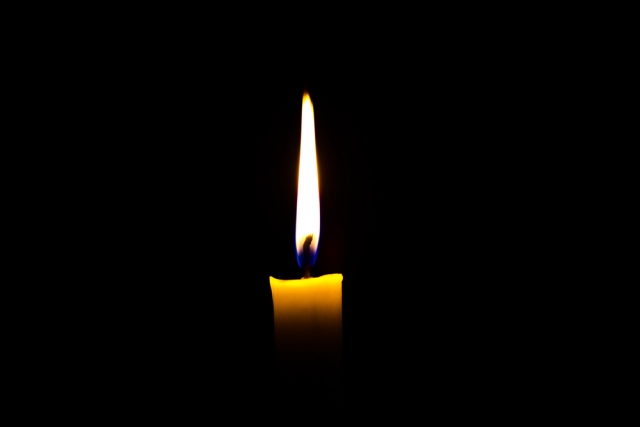Holocaust Memorial Day 2021
Holocaust Memorial Day, Wednesday 27 January 2021

‘Be the light in the darkness’
Holocaust Memorial Day (HMD) was founded nearly 20 years ago. Its purpose was to commemorate and educate everyone about the Holocaust and all the victims of Nazi persecution, but also to include and raise awareness of subsequent recognised genocides.
From the very start, the plans for commemoration involved participation in events and educational programmes – but along with everything else in the last 12 months that has had to change this year. The fact that the methods of commemoration have had to be adapted should not mean that the significance of HMD and its messages are lost. One of the recurring elements of many of the horrific events that are commemorated by HMD is that they were able to take place not just by indifference but by distraction – ‘there is no genocide here, just a civil war’, ‘you won’t see state orchestrated murder here, just civil unrest’, ‘journalists can’t get to the middle of this huge land in time to report on the carnage that has been wreaked’, ‘we are not removing civil liberties, just protecting you from the outside forces that would endanger you’. The intentional sleight of hand was very much a part of the process. Sometimes that sleight of hand was organised, but more often those committing genocide, persecution, ethnic cleansing, abuse of civil liberties etc have taken advantage of other problems in society to carry out their acts. Recognising that there are historic and contemporary events that have resulted in murder and genocidal acts while the world is distracted or concerned with more immediate problems is a key lesson to be taken when learning about the past.
Learning from the past can be difficult because no two sets of events are the same, but perhaps what we can do is allow the past to provide us with an insight into situations and turning points and how they have played out in other contexts. They also allow us insights into how people can behave and from that we can be aware of those that take advantage of a situation to behave callously or selfishly, and also take inspiration from those that behave with kindness and humanity.
During the Holocaust some individuals were able to act in ways that give us hope when everything may seem hopeless. Frank Foley was a British passport officer (and intelligence agent) living in Berlin before the war. With no authority from his bosses, he helped thousands of Jewish men and women to escape Germany by granting them passports to the UK and to British-controlled Palestine. He wanted to help them to get away from the ever-growing Nazi anti-Semitism that would eventually kill six million Jews.
Sophie Scholl and her brother Hans, along with their friend Christoph Probst and others, founded the White Rose group in Munich. They were a resistance group to Nazism that told people - especially those in universities – of the atrocities the Nazis were committing and that this should not be supported. The group was discovered and in 1943 Hans and Sophie were executed at only 24 and 21 years of age.
Even within the Concentration camps and Ghettos we can take inspiration from incredible people. Emanuel Ringleblum was a historian who organised a resistance project in the Warsaw Ghetto. He, along with other Jews forced to live in the squalid conditions there, created an archive of their lives there and of the lives of others. They set up education workshops and took testimony from those in labour contingents and other forced labour groups. The archivists of the ‘Oneg Shabbat’ group collected a great deal of information about what the Nazis were doing to the Jews and were determined that the Nazis would not be able to totally eradicate the Jewish people. The collated documents, including photographs and some artefacts, were buried in metal boxes and milk cans at three selected sites in the Ghetto shortly before the Nazis destroyed it. Ringleblum and his family were killed by the Nazis, but other members of the group survived and two of the archive sites were found and rescued. The group’s courage has helped us to learn about the Nazi atrocities but also about some of the incredible resistance activities of those who were subjected to the Holocaust.
For HMD 2021 the theme is ‘Be the Light in the Darkness’, an important theme this year when the light at the end of a tunnel seems to magically move away every few weeks. But then that is the point – it’s not about lights in the distance but about a personal call to be a light. We can all be consumed with personal darkness right now and many of us have no choice but to give our time to the things that must be done immediately; but some of us can also find time to look around at the world, to see what is happening, to learn about (and from) the events of the past and present. We can take inspiration from the men and women of the past such as those discussed here and we can ask ourselves ‘how can we make a difference?’
Our acts don’t have to be huge right now but if enough people can try to look around and beyond themselves then their small light will help to create a glow – a light that can help us all push back at the darkness.
HMD is still about commemoration and education – and it can also be about inspiration even if this year we can’t commemorate in quite the same way. The past can still offer up insights and lessons, and what better time to reflect when many of us are unable to go anywhere.

